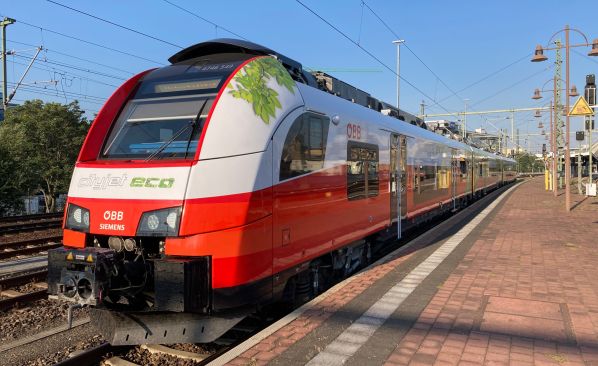The Austrian Federal Railways’ (ÖBB) Cityjet eco prototype train was then shown to the public at Dresden main station.
VVO is looking for more sustainable methods of propulsion than diesel to make its regional train operations greener. At present, the Saxony diesel network clocks up 2.3 million train-km annually.
VVO is currently working with both the Technical University of Dresden and the Technical University of Berlin to study the use of hydrogen or battery trains on lines radiating from Dresden to Königsbrück, Kamenz and Zittau, from Heidenau to Altenberg and between Pirna, Neustadt and Sebnitz.
The project is supported by the Federal Ministry of Transport and Digital Infrastructure (BMVI) and the state of Saxony’s Ministry for Economic Affairs, Labour and Transport (SMWA).
“With feasibility studies and technology comparisons, we are preparing a system decision for our regional routes for the period after 2031,” explains Mr Burkhard Ehlen, managing director of VVO. “We want to make a decision by the end of 2021 so that there is enough time to build the necessary infrastructure, regardless of whether it is for hydrogen or battery trains.”
“For VVO, we are investigating the important questions relating to the operation of the vehicles and the charging and tank infrastructure,” explains Mr Benjamin Ebrecht from TU Berlin.
“Our focus is on the macroeconomic comparison - what is the most economical technology for taxpayers,” adds Professor Arnd Stephan from TU Dresden.
S-Bahn upgrade
In the meantime, VVO, Saxony municipalities and infrastructure manager DB Networks plan to invest more than €30m to upgrade the Dresden - Königsbrück line to S-Bahn standard by 2025, by increasing the maximum line speed and making stations barrier-free for passengers with reduced mobility.

